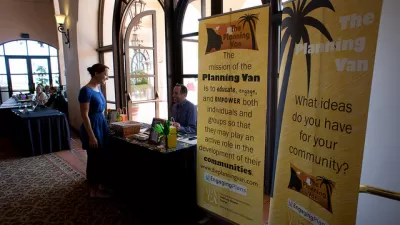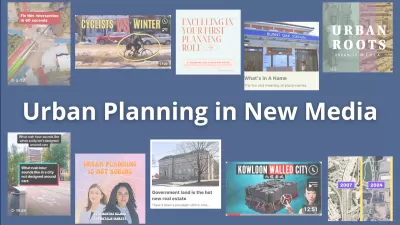With social media and the internet generally making it easy to contact faculty across the globe students are tempted to do so. But when is it appropriate? The short answer is contact them if they request it.

With social media and the internet generally making it easy to contact faculty across the globe students are tempted to do so. But when is it appropriate? The short answer: contact them if they request it.
There are two main situations where students commonly consider contacting faculty members at other universities. First is for help in assignments—from class papers to theses and dissertations. The second is for advice about graduate programs—particularly before they have applied. (After students are admitted the faculty will likely be contacting the students, or at least there will be a clear process for communication, so the situation is less complex).
There are a lot of different variations on these themes, so I propose some of the range using real examples from my own experience and that of colleagues.
Assignments
In terms of assignments, the classic case is the assignment where a student is asked what a famous planning academic would say about a situation. Rather than delving into the written work of that scholar, the students email the academic. That is obviously not the purpose of the assignment.
At the other extreme a doctoral student might propose a Delphi expert panel of faculty involving some days of anonymous work—commenting on a topic, reviewing the answers of others, AND revising comments. While this is a valid method, it relies on many experts giving a great deal of time, free of charge. Many are only willing to do this if there’s a likelihood of the results making a difference. This is more plausible if the sponsor is a government or major think tank.
As an aside, I once hired a student to work on a project creating case studies. A colleague and I asked four applicants how they would find out about an applied research project by a (named) famous academic. Three said brightly they would start by calling her up. They did not get the job. Obviously reading products and reviews of the work would be the start, and could be enough for many projects. Even if the case studies were important enough (e.g., lengthy, public, and likely to be influential) a carefully written request for help would perhaps be a later step.
Graduate Programs—Before Admission
Some students think that they should contact faculty members at the masters level before applying to grad school and spend a great deal of time contacting admissions offices and even emailing multiple faculty for appointments. As a program director, I fully support open houses, and I meet or email prospective students because it is part of my job. Like many other universities, admissions office can connect students to faculty in an organized way. We have a team of students ready to respond to queries.
But imagine a program that gets 200-300 applications and maybe 400-500 people who consider applying. If each one of them emails a faculty member with questions that may take five minutes to read and then ten minutes to answer, for 500 students that would 125 hours each year. This is before they have even applied and been accepted. While it may seem reasonable, it is 125 hours not spent with current students. Of course not every person will write, but some expect a great deal of time from multiple faculty as they try to make a decision about whether to even fill in an application.
For this reason, many schools, including my own, try to answer many questions in open houses, including an increasing number of virtual events on web sites. And AFTER you have been admitted, the faculty will likely be contacting YOU. As I have said before, people are fair game if they do not provide accessible information. However, for those with information-rich program and personal web sites, in programs with open houses in various formats, and program directors and student teams willing to answer queries, there will be enough information available to apply and then you can ask more detailed questions once admitted.
Many people also get advice to contact faculty about PhD interests before applying to such programs. For most programs, however, PhD students are admitted not to work on particular grant but through a more general process. Getting in touch with a faculty member won’t help your chances and also takes time. However some faculty members, particularly those who fund with grants, do like to pre-review students but they will say so on their web site. That’s the signal to contact them.
Overall, my best advice about contacting faculty members is to read their work first.

Planetizen Federal Action Tracker
A weekly monitor of how Trump’s orders and actions are impacting planners and planning in America.

Map: Where Senate Republicans Want to Sell Your Public Lands
For public land advocates, the Senate Republicans’ proposal to sell millions of acres of public land in the West is “the biggest fight of their careers.”

Restaurant Patios Were a Pandemic Win — Why Were They so Hard to Keep?
Social distancing requirements and changes in travel patterns prompted cities to pilot new uses for street and sidewalk space. Then it got complicated.

Platform Pilsner: Vancouver Transit Agency Releases... a Beer?
TransLink will receive a portion of every sale of the four-pack.

Toronto Weighs Cheaper Transit, Parking Hikes for Major Events
Special event rates would take effect during large festivals, sports games and concerts to ‘discourage driving, manage congestion and free up space for transit.”

Berlin to Consider Car-Free Zone Larger Than Manhattan
The area bound by the 22-mile Ringbahn would still allow 12 uses of a private automobile per year per person, and several other exemptions.
Urban Design for Planners 1: Software Tools
This six-course series explores essential urban design concepts using open source software and equips planners with the tools they need to participate fully in the urban design process.
Planning for Universal Design
Learn the tools for implementing Universal Design in planning regulations.
Heyer Gruel & Associates PA
JM Goldson LLC
Custer County Colorado
City of Camden Redevelopment Agency
City of Astoria
Transportation Research & Education Center (TREC) at Portland State University
Camden Redevelopment Agency
City of Claremont
Municipality of Princeton (NJ)





























